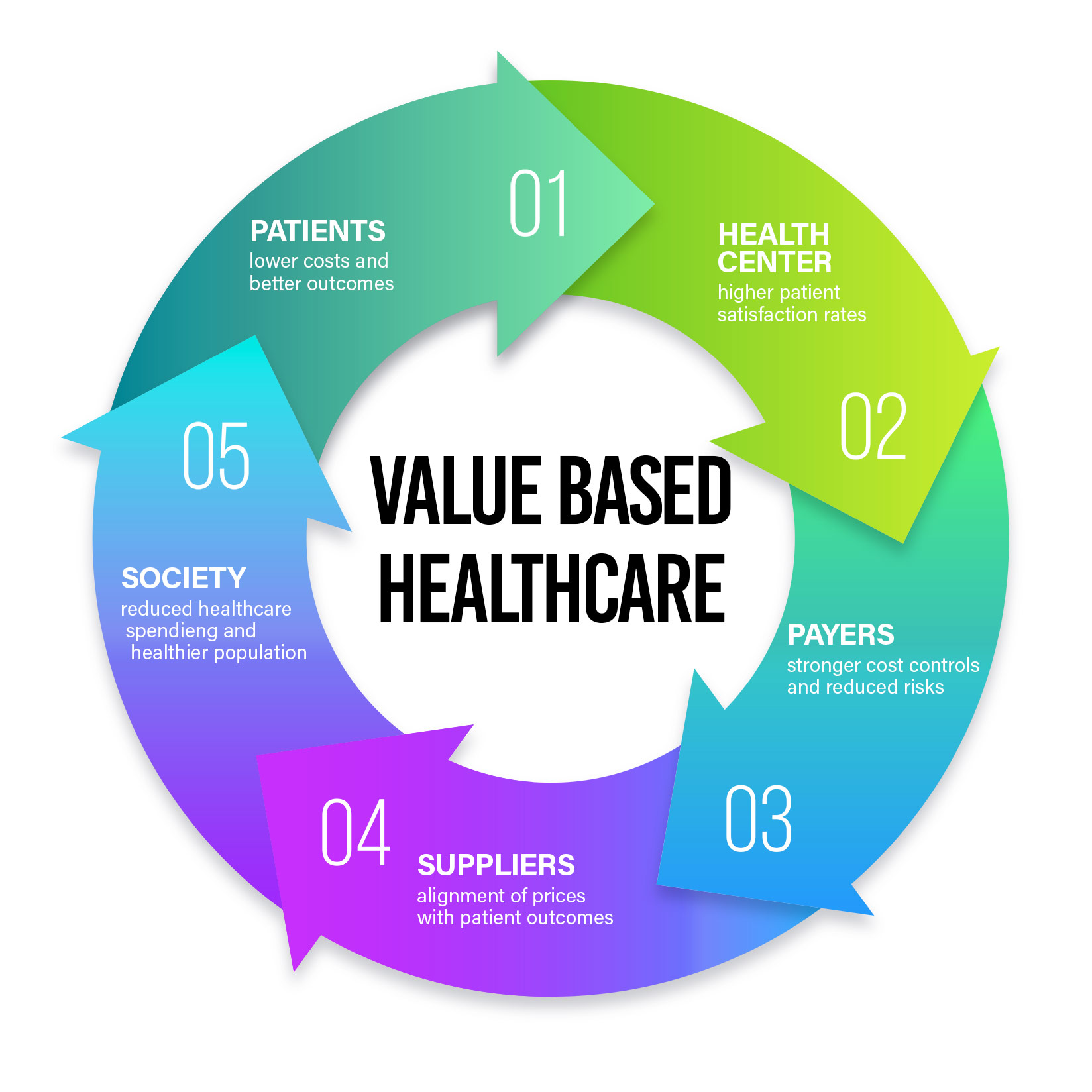Value-Based Healthcare (VBHC) is undeniably a rising trend, advocating for a shift in the healthcare model from quantity to quality. It emphasizes decision-making based on health outcomes rather than the volume of services provided.
This trend emerges in response to new healthcare technologies, concerns about the soaring costs of healthcare, variability in healthcare delivery, and increased patient involvement in decision-making.
In essence, the new paradigm of value-based medicine represents a transformative shift in the healthcare sector, placing significant importance on the value experienced by patients.
What is Value-Based Healthcare?
Value-Based Healthcare is a model in which healthcare system stakeholders align incentives with patient outcomes.
The goal is to enhance the quality of healthcare while reducing costs, providing patients with the best possible outcome given the resources utilized.
Instead of solely focusing on the quantity of services rendered, VBHC concentrates on the quality of care and patient outcomes.

Differences from Other Healthcare Systems
This approach is built on two key concepts: value and the cycle of continuous improvement. Value in healthcare refers to the relationship between patient outcomes and costs.
VBHC aims to maximize this value, ensuring that patients receive necessary care at the lowest possible cost.
The continuous improvement cycle involves constant evaluation of care processes and the implementation of enhancements.
Unlike fee-for-service or capitation payment systems, VBHC places value in measuring outcomes and the cost of service.
What does Value-Based Healthcare entail?
Value-Based Healthcare is grounded in several principles:
Outcome measurement
Evaluation of not only medical outcomes but also patient experience, satisfaction, and comfort.
Total Costs
Inclusive of direct medical expenses and those related to logistics, patient time, and other factors.
Patient-centric approach
Focuses on individual patient needs and preferences to ensure the most suitable care for their situation.
Process standardization
Ensures consistency and quality in healthcare delivery by adopting evidence-based best practices and protocols.
Active engagement of healthcare professionals
Encourages active participation of healthcare professionals in process improvement and emphasizes quality of care.

Benefits of Value-Based Healthcare
Value-Based Healthcare yields numerous advantages, enhancing healthcare quality and reducing costs, leading to improved patient outcomes.
Key benefits include enhanced quality, resulting in greater patient satisfaction and active involvement in decision-making.
Costs are reduced through efficiency focus, waste elimination, standardized processes, and continuous improvement, ultimately promoting transparency.

Challenges of value-based healthcare
The shift to value-based healthcare represents a significant cultural change, which can be a slow and challenging process. It requires collaboration from all healthcare professionals and a willingness to adopt new ways of working.
Resistance to change may arise, especially if stability or income is perceived to be threatened.
Accurate measurement of patient outcomes can be complex, requiring relevant quality indicators based on solid evidence.
Introducing new healthcare information systems and technology can be costly and complex in the early stages of implementation. Addressing variability in medical practice, where outcomes may significantly differ between providers and regions, is a challenge VBHC seeks to tackle.
Challenges extend beyond these points.
Cultural readiness, issues of resource wastage, diagnostic inequity, insufficient prevention, depersonalization of care, and more pose additional hurdles.

Ensuring the Future of Value-Based Healthcare
Value-Based Healthcare is a pending revolution with the potential to transform global healthcare delivery.
By focusing on quality improvement and cost reduction, its primary purpose is to provide patients with the best possible value. As Value-Based Healthcare gains traction, healthcare systems and professionals must embrace this approach on a massive scale.
Undoubtedly, the future of healthcare will be positively transformed by VBHC.
In this paradigm shift, technology will play a crucial role in data collection, outcome measurement, and continuous process improvement.
Ultimately, Value-Based Healthcare has the potential not only to enhance the quality and efficiency of healthcare but also to make it more accessible and equitable for all individuals, regardless of their geographical location or economic situation.



